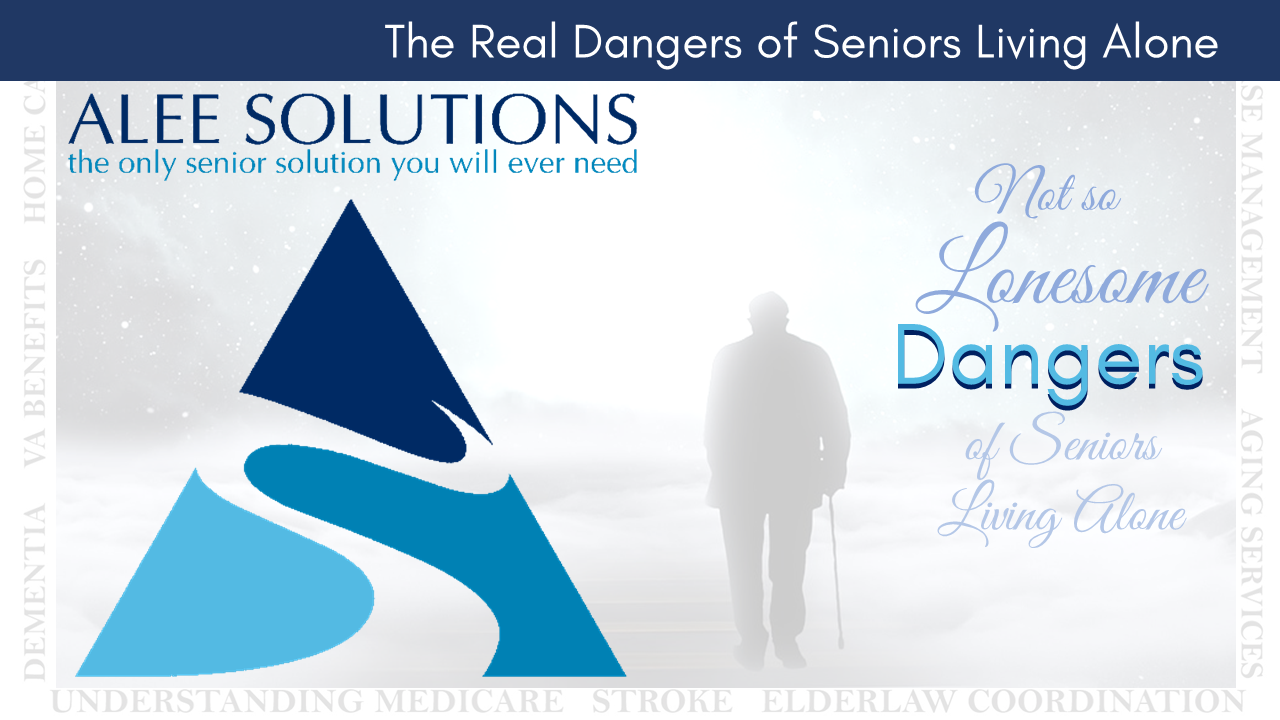Golden Alert: Seniors Living Alone -It maybe Hazardous to Their Health
/Research has shown that an alarming number of seniors are remaining in their homes when they are in need of more assistance and high level of care. In so many of these cases they are remaining in their homes alone.
Most of us wish to remain in our homes as long as possible but when do the benefits of staying your home no longer out weight the dangers?
Our Social Worker, Alisha Duvall MSW/MFT, found that after consulting the Administration on Aging that nearly 44% of seniors 65 and older living alone need assistance with the activities of daily living. Some would say that there is an easy solution to preventing these dangers - move them into a nursing home. Our Social Worker disagrees. Most seniors can excel and thrive in a lower level of care. In Kenctuckiana there are over four levels of care before you need nursing home long term care and those options should be explored.
Call Alisha at (502)242-7691
There are many dangers of living alone. In an article in the Smithsonian, Joseph Stromberg declared Warning: Living alone may be hazardous to your health. He went on to say that it is not simply the dangers of depression and anxiety that develop with prolonged social isolation but it actually increases a seniors change of death.
Joseph Stromberg went on to say, "the group, led by Andrew Steptoe, examined data on the 6,500 older adults (aged 52 and up) who took part in the English Longitudinal Study of Ageing in 2004, and monitored which participants survived up until last March. The researchers specifically looked at the association between mortality (overall risk of death) and a pair of conditions: social isolation (as indicated by a lack of contact with others) and loneliness (as reflected by participants’ answers on a survey).
In total, 14.1 percent of the people who’d participated in the survey had died in the 8 years after the study was administered, but those who were classified as socially isolated had died at considerably higher rates. Of the most socially isolated respondents, 21.9 percent did not survive to March 2012, as compared with 12.3 percent of the least isolated. Even after the participants’ baseline health and demographic factors were taken into account, being socially isolated still correlated to an increase in their mortality.
Interestingly, though, defining oneself as lonely—via the answers about one’s emotions and psychological state on the survey—did not have the same effect. Those who were lonely did have overall higher mortality, but this was because on average, they were older and had poorer baseline health conditions at the start. When the researchers controlled for baseline health and age, the mortality gap between the lonely and the non-lonely largely vanished.
This indicates that the real danger of living alone is not feeling lonely per se, but having reduced contact with others. One possibility is that an older person who seldom sees friends and family is less likely to get the help they need in managing various ailments, and is probably also less likely to be encouraged to go see a doctor when new health problems pop up. The researchers speculate that living alone might even cause people to have poorer health habits, such as smoking, eating an unhealthy diet and getting less physical activity."
As previous researchers have found those with a health condition such as cardiovascular disease are more likely to die than of their counterparts who are not living alone. Just like a pack of wolves are more likely to survive than the lone wolf so are Seniors. Simply being around others helps us ensure that we take better care of ourselves. Call our social worker today to ask about your loved ones risk and the options and resources available to get them the extra care and support they need.
Read more: https://www.smithsonianmag.com/science-nature/warning-living-alone-may-be-hazardous-to-your-health-8795790/#H3P42Lqzy4gAEIwS.99




